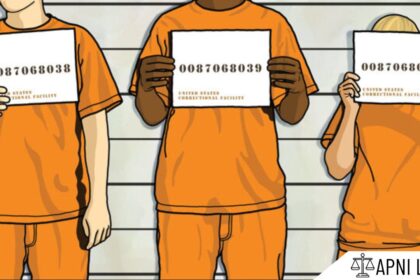In a significant ruling, the Bombay High Court ruled that associating with Dawood Ibrahim, whom the Central Government declared a terrorist in his “individual capacity,” does not warrant punishment under Section 20 of the Unlawful Activities (Prevention) Act (UAPA). The court clarified that Section 20 pertains to membership in a terrorist organisation, not individual associations.
A division bench comprised Justices Bharati Dangre and Manjusha Deshpande granted bail to two men. Authorities implicated Parvez Vaid and Faiz Bhiwandiwala for their alleged links to D-Company and involvement in a drug seizure case.
Court Observation
“Section 20 prescribes punishment for being a member of a terrorist gang or organisation. In the instant case, the material on which reliance is placed is in the form of Section 164 statement. Referring to Parvez Vaid (petitioner) as a Member of D-gang. The prima facie, would not attract the offence under section 20, as by the amendment in Schedule IV. Dawood Ibrahim Kaskar has been declared as a terrorist in individual capacity.
Therefore, any association with him on the pretext that a person belongs to D-gang/Dawood gang will not attract the provisions of Section 20.” The bench noted that under the UAPA, the Central Government has the authority to list certain entities as terrorist organisations (under the first schedule) or individuals (under the fourth schedule). The Security Council exercises this power under Chapter VI of the UN Charter to combat international terrorism. A notification on September 4, 2019, individually declared Dawood Ibrahim a terrorist.
Case Details:
Prosecution witnesses claimed in their Section 164 statements that Vaid was a member of D-Company and cited a transaction of Rs 25,000 between Vaid and a known associate of Dawood. The Anti-Terrorism Squad (ATS) arrested Faiz Bhiwandiwala after finding 600 grams of ganja in his possession. The prosecution linked him to D-Company, citing his interactions with Vaid and alleged use of the “dark net” to buy narcotics through the app “Wicker Me.”
Court’s Observations:
For Bhiwandiwala, the court found no evidence to prove his membership in D-Company. The court noted that the 600 grams of ganja recovered was a small quantity, insufficient to justify incarceration. The court dismissed the prosecution’s argument that sharing photos of drugs with Vaid constituted a crime under the NDPS Act.
Which definitely do not deserve his incarceration, as the quantity is neither commercial nor intermediate. But is a small quantity, and bar for releasing him on bail under Section 37 of the NDPS Act. He shall not come in its way. Mere sharing of the pictures of Narcotics or prohibited substances definitely do not attract the provisions of the NDPS Act.
The bench granted bail to both Vaid and Bhiwandiwala on a surety of Rs 50,000 each. Thus, setting a significant precedent regarding individual associations and the scope of the UAPA.








